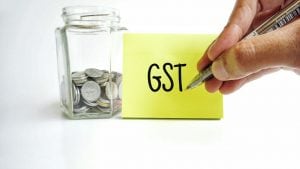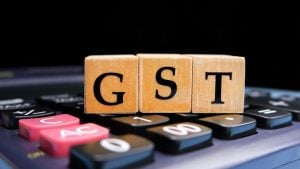Online gaming industry hopes GST Council will reconsider decision to levy 28% tax
Summary
The industry is also waiting for clarity in the GamesKraft case which deals with the retrospective application of GST by terming online gaming with money as gambling and betting instead of a game of skill.
India’s online gaming industry is sticking to its demands on GST. The gaming federation head, Roland Landers, indicates that while the government exchequer has benefited under the new GST laws for online gaming, industry interests also play a role. Landers is hopeful the issue will be reconsidered by the GST Council in its next meeting, which he says could be sometime in June. He added the industry is fully compliant with the new GST rules which rolled out last year from October 1.
“We’ve made representations in the past on seeking a win-win where the tax revenues to the exchequer also increase and at the same time industry also gains so that in the long term we survive and continue contributing to the exchequer,” Landers told CNBCTV-18. “We believe and are hopeful that when the GST Council review happens in the next one, which should be towards the end of June, and where online skill gaming is scheduled to be reviewed and are hopeful they will look at what we have been proposing.”
Under the new GST regime, the government levies 28% on the amount deposited against the 18% charged on revenues earlier. The industry claims this has led to a 450% jump in the effective GST on online gaming and most of the industry is currently absorbing the jump in the tax liability. Industry reports also claim the government’s monthly GST collections from online gaming have shot up to ₹1000-₹1200 crore from the earlier ₹200 odd crores with online gaming platforms now contributing 1-2% of the overall GST collections for the government. “We have made representations for a moderation in the 28% GST on online gaming,” industry officials say.
Roland Landers, head of AIGF says, “Prior to October 1, 2023, by the government estimates alone, there were close to 900 or so online gaming companies and definitely there’s been an impact, and you know some have gone through certain measures to take a re-look at their businesses, to cope with the changed scenario. Our only request is that if there could be a solution that while generating enough tax increase for the exchequer from what it was in the earlier regime, also allows the industry to exist and grow.”
The industry is also waiting for clarity in the GamesKraft case which deals with the retrospective application of GST by terming online gaming with money as gambling and betting instead of a game of skill. The Centre had served a ₹21,000 crore tax demand which was dismissed by the Karnataka High Court. However, the Centre has appealed against the case in the Supreme Court and the matter along with multiple other petitions which was recently clubbed, may come up for a final hearing in early May.

Elon Musk forms several ‘X Holdings’ companies to fund potential Twitter buyout
3 Mins Read
Thursday’s filing dispelled some doubts, though Musk still has work to do. He and his advisers will spend the coming days vetting potential investors for the equity portion of his offer, according to people familiar with the matter









 Listen to the Article
Listen to the Article  Daily Newsletter
Daily Newsletter













